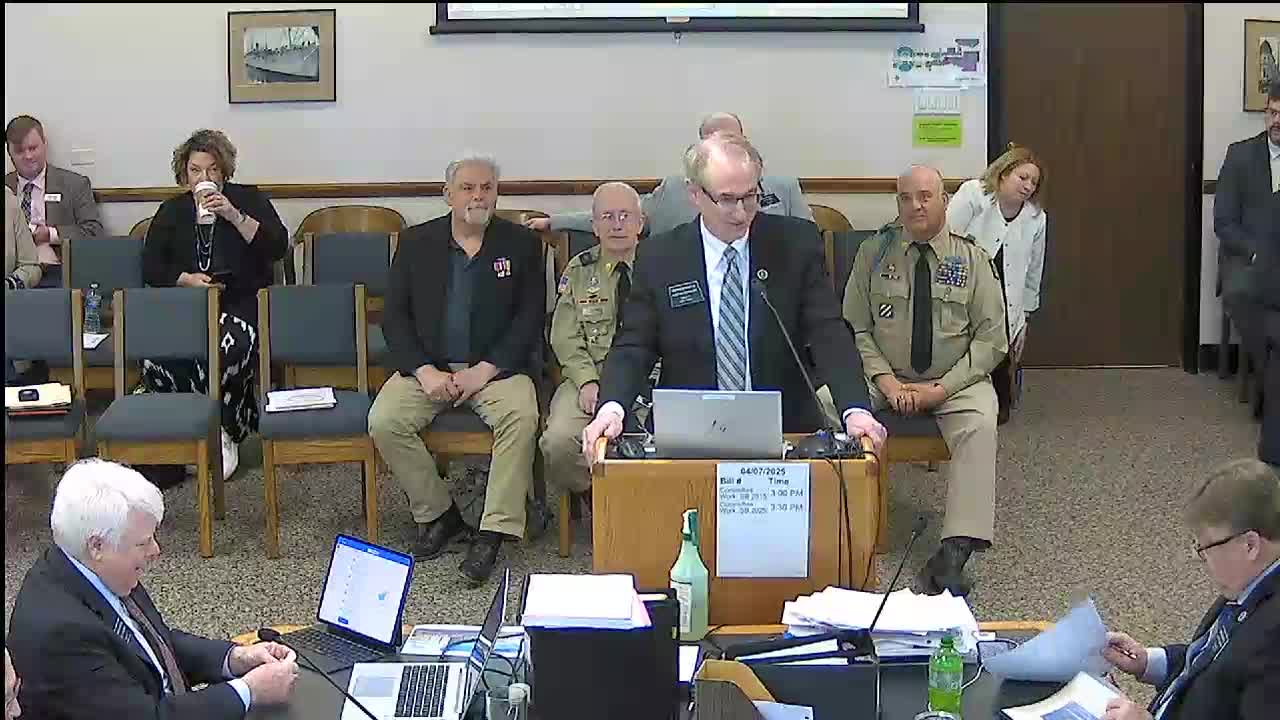Committee hears request for $3 million line of credit to complete Fargo National Cemetery improvements
Get AI-powered insights, summaries, and transcripts
Subscribe
Summary
Lawmakers heard testimony on Senate Bill 2265 asking state approval for a $3 million line of credit to help complete indoor facilities, parking and other improvements at the Fargo National Cemetery; project financing remains contingent on U.S. Department of Veterans Affairs approval and other donations.
Chairman Austin Shower told the House Appropriations Committee that Senate Bill 2265 would provide the Fargo National Cemetery a line of credit of up to $3,000,000 to improve facilities for families and honor guard members.
The bill’s sponsor said the cemetery, dedicated in 2019, has expanded from 5 to 35 acres and has room for roughly 3,200 additional burials, but currently lacks indoor assembly space, permanent restrooms, adequate parking, a gallery honoring veterans, a hearse garage and an office for staff. “We can do better,” Shower said, describing how funerals now rely on a vault toilet and a porta-potty that freezes in winter.
Supporters told the committee the local Fargo Memorial Honor Guard has raised $1,400,000 toward an estimated $5,000,000 plan and is seeking a $3,000,000 line of credit from the state to complete prioritized construction. Shower said the line of credit would be available July 1, 2025 through June 30, 2027 and that a deficiency appropriation would be requested only if the line is accessed.
Committee members questioned project timing, coordination with potential gifts from Minnesota and federal involvement. Shower and Senator Scott Meyer, who attended as prime sponsor, told lawmakers the project is subject to U.S. Department of Veterans Affairs (VA) review and approval. “Once it’s complete, accepted by the VA, it goes over completely to federal control,” Shower said, describing the cemetery’s planned transfer to VA ownership and maintenance once the VA accepts the project.
Lawmakers pressed for clarity on triggers for accessing state funds. Representative Bosch asked whether the line of credit was triggered by federal or Minnesota contributions; Shower replied the single trigger would be VA approval. Representatives also raised questions about construction cost estimates, long-term operating staffing (the honor guard is volunteer-run now) and the scope of fundraising already completed.
Some members said they supported the goal but wanted assurances projects be designed to VA standards before committing state dollars. Representative Pyle noted a chapel reference in the bill the presenter had not emphasized and suggested removing or reprioritizing it in favor of bathrooms and parking. Representative Richter asked whether the cemetery would divert veterans from local burial sections; presenters said burial choices remained a family decision and that the Fargo site aims to meet demand regionally.
The committee did not take a formal vote on SB 2265 during this hearing. Members asked for follow-up details about engineering plans, fundraising commitments from neighboring states and whether the bank of North Dakota language should be clarified to assign deficiency appropriation authority only to the Department of Veterans Affairs.
If moved forward by the committee, any use of state funds would require the VA to approve the project; supporters said that federal acceptance would transfer long‑term operation and maintenance responsibilities to the VA.
Notes: The testimony emphasized that the state’s role would be conditional on federal approval and that local fundraising and federal advocacy (including support from U.S. senators) remain active elements of the financing strategy.
